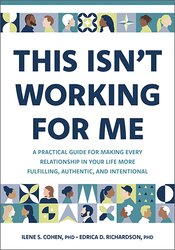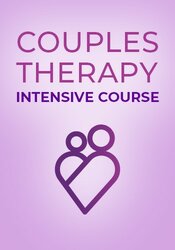Constructively Managing Conflict in Relationships

Conflict can arise from differing perspectives, value disparities, and communication styles that cause stress and tension. Conflict will happen in every relationship because we can’t all react the same or have the same thoughts regarding every situation. Therefore, effectively managing conflict becomes the goal for maintaining healthy connections and enduring relationships.
When we have conflicting viewpoints in our relationships, we often register them as a threat, leading to anxiety and escalating tensions. Additionally, holding the idea that conflict is always negative can lead to sensitivity and finally to arguments. Instead, we should see inevitable conflict as an opportunity for growth and a deeper understanding of the relationship.
We have all heard that effective communication is widely acknowledged as a critical factor in managing conflicts. Although most of us are adept at communicating when we are not upset, this skill can—and often will—falter in high-tension situations. Therefore, it is important to learn how to manage our reactivity during conflict to engage in constructive conflict management. We can do this by distinguishing between destructive conflict and constructive conflict.
Destructive conflict, characterized by defensiveness and hostility, can harm relationships and individual well-being. This kind of conflict brings rising tension and out-of-control emotions. But recognizing our common reactions and patterns during conflict is the first step toward engaging in constructive conflict management. Learning to manage our emotions and responding thoughtfully can transform destructive conflict into a constructive dialogue, creating mutual understanding and growth.
Constructive conflict involves actively addressing and discussing differences respectfully and productively. This allows both parties to express their perspectives and needs while listening to understand each other’s points of view. Effective conflict management requires strategies, practice, and self-awareness. The following strategies are critical for managing healthy, constructive conflict:
Manage yourself effectively. Managing our emotions and reactivity is crucial in constructive conflict management. This can involve stepping back, calming ourselves before responding, and actively listening to understand the other person's perspective with curiosity instead of judgment.
Address the issue, not the person. Focus on the issue rather than attacking or blaming the other person. This can help keep the conversation productive and avoid escalating tensions. When appropriate, take responsibility for your part in the issue.
Find common ground. Even with different perspectives, finding common ground can create a foundation for mutual understanding and resolution. For instance, if you and your partner have different ideas about how to spend your free time, you can agree that both of your needs for relaxation and socialization are important and then work together to find a compromise that meets both of your needs.
Express yourself constructively. Focus on sharing your perspective without attacking the other person’s character to create a safe environment for discussion.
Understand the root cause. Avoid rushing to solutions; discuss underlying concerns to achieve a lasting resolution and prevent recurring conflicts. Look at how you fight, taking note of the negative interactional pattern.
Enhance connection through respectful communication. Respect is key to any relationship. You can create understanding and respect by actively listening, validating feelings, and remaining open-minded to others’ experiences. Remember, this doesn’t mean you have to agree with them; it’s about respecting their personal experience and making them feel valued and respected.
Limit cross-complaining. It's important to focus on the issue during a conflict. Avoid bringing up unrelated issues that might be bothering you. This will help keep the conversation clear and focused, making it easier to find a resolution.
When it comes to conflict resolution, prioritizing and managing your own emotional reaction instead of others’ is a valuable skill to learn. Approaching conflict with patience, empathy, and respect can facilitate constructive resolutions that strengthen relationships and contribute to personal growth. Remember, conflicts are natural and can lead to positive outcomes if handled appropriately.
When we have conflicting viewpoints in our relationships, we often register them as a threat, leading to anxiety and escalating tensions. Additionally, holding the idea that conflict is always negative can lead to sensitivity and finally to arguments. Instead, we should see inevitable conflict as an opportunity for growth and a deeper understanding of the relationship.
We have all heard that effective communication is widely acknowledged as a critical factor in managing conflicts. Although most of us are adept at communicating when we are not upset, this skill can—and often will—falter in high-tension situations. Therefore, it is important to learn how to manage our reactivity during conflict to engage in constructive conflict management. We can do this by distinguishing between destructive conflict and constructive conflict.
Destructive conflict, characterized by defensiveness and hostility, can harm relationships and individual well-being. This kind of conflict brings rising tension and out-of-control emotions. But recognizing our common reactions and patterns during conflict is the first step toward engaging in constructive conflict management. Learning to manage our emotions and responding thoughtfully can transform destructive conflict into a constructive dialogue, creating mutual understanding and growth.
Constructive conflict involves actively addressing and discussing differences respectfully and productively. This allows both parties to express their perspectives and needs while listening to understand each other’s points of view. Effective conflict management requires strategies, practice, and self-awareness. The following strategies are critical for managing healthy, constructive conflict:
Manage yourself effectively. Managing our emotions and reactivity is crucial in constructive conflict management. This can involve stepping back, calming ourselves before responding, and actively listening to understand the other person's perspective with curiosity instead of judgment.
Address the issue, not the person. Focus on the issue rather than attacking or blaming the other person. This can help keep the conversation productive and avoid escalating tensions. When appropriate, take responsibility for your part in the issue.
Find common ground. Even with different perspectives, finding common ground can create a foundation for mutual understanding and resolution. For instance, if you and your partner have different ideas about how to spend your free time, you can agree that both of your needs for relaxation and socialization are important and then work together to find a compromise that meets both of your needs.
Express yourself constructively. Focus on sharing your perspective without attacking the other person’s character to create a safe environment for discussion.
Understand the root cause. Avoid rushing to solutions; discuss underlying concerns to achieve a lasting resolution and prevent recurring conflicts. Look at how you fight, taking note of the negative interactional pattern.
Enhance connection through respectful communication. Respect is key to any relationship. You can create understanding and respect by actively listening, validating feelings, and remaining open-minded to others’ experiences. Remember, this doesn’t mean you have to agree with them; it’s about respecting their personal experience and making them feel valued and respected.
Limit cross-complaining. It's important to focus on the issue during a conflict. Avoid bringing up unrelated issues that might be bothering you. This will help keep the conversation clear and focused, making it easier to find a resolution.
When it comes to conflict resolution, prioritizing and managing your own emotional reaction instead of others’ is a valuable skill to learn. Approaching conflict with patience, empathy, and respect can facilitate constructive resolutions that strengthen relationships and contribute to personal growth. Remember, conflicts are natural and can lead to positive outcomes if handled appropriately.
This Isn’t Working for Me:
A Practical Guide for Making Every Relationship in Your Life More Fulfilling, Authentic, and Intentional
A Practical Guide for Making Every Relationship in Your Life More Fulfilling, Authentic, and Intentional

We all want to avoid drama and pain in our relationships, yet we remain stuck in never-ending cycles of misunderstandings, hurt feelings, and triggering interactions. Sometimes it just seems easier to decide we are “done” with people rather than continue trying over and over again. Even our best and closest relationships – with our partners, friends, family, and colleagues – can feel unduly challenging.
In this straightforward guide, expert relationship therapists, Ilene Cohen and Edrica Richardson get to the heart of what it means to really be in fulfilling relationships and why connecting with the ones you love can feel so hard. You’ll learn how “doing the work” encourages healing and growth within yourself and within your relationships.
In this straightforward guide, expert relationship therapists, Ilene Cohen and Edrica Richardson get to the heart of what it means to really be in fulfilling relationships and why connecting with the ones you love can feel so hard. You’ll learn how “doing the work” encourages healing and growth within yourself and within your relationships.
Couples Therapy Intensive Course:
Navigating Modern Relationships with Esther Perel, Ellyn Bader, Tammy Nelson, and more
Navigating Modern Relationships with Esther Perel, Ellyn Bader, Tammy Nelson, and more

Help kids from early childhood to teenagers process their emotions, learn self-control, increase social skills and more using play therapy. Includes tips for working with children with depression, anxiety, trauma, behavior issues, ADHD, and Autism Spectrum Disorders. Plus, earn up to 18.5 CE hours, all counting towards becoming a Registered Play Therapist (RPT) through the Association for Play Therapy.
Meet the Expert:
Ilene S. Cohen, PhD, LMFT, , is a therapist, author, and mother of two young girls. She is one of the most respected voices in the psychology of people-pleasing and navigating the difficulty of living an intentional life while maintaining fulfilling relationships.
Dr. Ilene is the award-winning author of six books, including When It’s Never About You and The Forgiveness Workbook, as well as a regular contributor to Psychology Today. All of this work is fueled by her passion for helping people achieve their goals, build a strong sense of self, and lead fulfilling and meaningful lives. Additionally, as the president of her family’s foundation, Dr. Ilene oversees various initiatives to create better opportunities for those in need.
Learn more about her educational products, including upcoming live seminars, by clicking here.
Dr. Ilene is the award-winning author of six books, including When It’s Never About You and The Forgiveness Workbook, as well as a regular contributor to Psychology Today. All of this work is fueled by her passion for helping people achieve their goals, build a strong sense of self, and lead fulfilling and meaningful lives. Additionally, as the president of her family’s foundation, Dr. Ilene oversees various initiatives to create better opportunities for those in need.
Learn more about her educational products, including upcoming live seminars, by clicking here.



